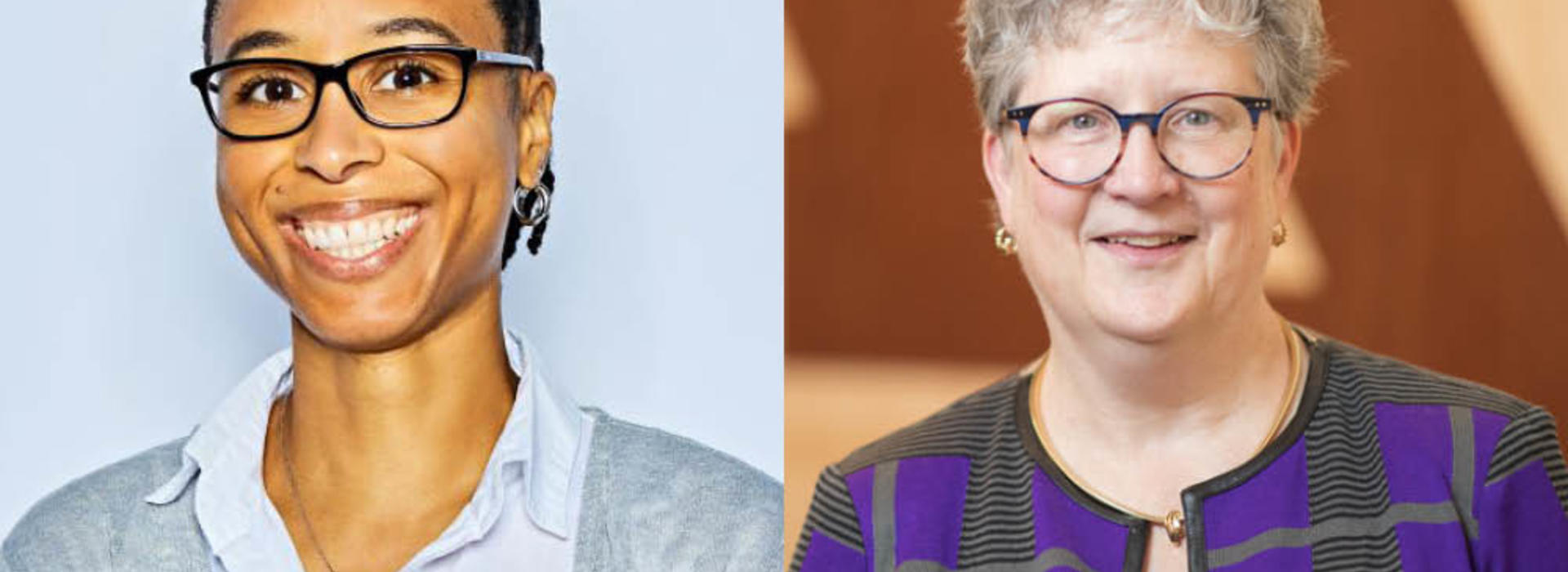
Women’s History Month: A Conversation With Women in Medicine
Women’s History Month is a time to “celebrate the contributions women have made to the United States and recognize the specific achievements women have made over the course of American history in a variety of fields.”
To recognize this important month, two University of Minnesota Medical School faculty members discuss what this special month means to them and all the ways we should continue to support women in medicine.
Stefani Thomas, PhD, DABCC, NRCC
Dr. Thomas is an assistant professor in the Department of Laboratory Medicine and Pathology at the Medical School and is the associate medical director of the M Health Fairview West Bank Laboratory.
1. What does Women’s History Month mean to you?
Dr. Thomas: The theme for this year’s Women’s History Month is “Women Providing Healing, Promoting Hope.” I appreciate that this theme does not limit the celebration of women to those who have made historical accomplishments. It creates space to acknowledge those women who are making positive contributions to society within and outside of professional contexts on a daily basis. To me, Women’s History Month also places an intentional focus on gender disparities that are often associated with implicit biases, and it creates an opportunity for society to “do better.” Accordingly, the celebratory nature of Women’s History Month should be coupled with intentional efforts to eradicate gender disparities.
2. What yet needs to happen?
Dr. Thomas: It’s interesting that Congress did not designate the month of March as National Women’s History Month until 35 years ago. This is a clear example of how there has been a historical lack of public acknowledgement of the numerous extraordinary achievements of women until relatively recently. In addition to giving homage to those women who struggled (and are continuing to struggle) for equality, we must amplify the voices and achievements of those women who are often overlooked due to the patriarchal nature of our society. This requires intentional efforts that should not be confined to the month of March. It’s exciting to witness women who are making “firsts” in the realms of science, math, education, entertainment, sports and politics, but we must ensure these firsts translate into “seconds” and beyond.
3. In what ways is your work supporting the continued advancement of women in medicine and leadership?
Dr. Thomas: My scientific foundation is in the field of mass spectrometry-based proteomics – a field that has until relatively recently been heavily male dominant. I am extremely thankful for, and encouraged by, trailblazing and successful female mass spectrometrists including Catherine Fenselau, Hui Zhang, Namandjé Bumpus, Renã Robinson and Lisa Jones who have been tremendous role models for me as an early career scientist. I am largely motivated by a self-imposed obligation to continue striving to make impactful scientific accomplishments so that I can open doors for other women in science and medicine while supporting and promoting diversity, equity and inclusion efforts.
Catherine Bendel, MD
Dr. Bendel is an associate professor in the Department of Pediatrics’ Division of Neonatology. She is also the director for the Neonatal-Perinatal Medicine Fellowship Program and vice chair for Equity, Diversity and Inclusion for the department.
1. What does Women’s History Month mean to you?
Dr. Bendel: I love the fact that we designate a specific time to celebrate all the amazing accomplishments of women — past and present. But as a senior faculty member, I think that it is equally important to remember and examine the injustices and biases of the past and present. We need to understand where we came from to understand where we are today and to work toward where we want to be in the future.
2. What yet needs to happen?
Dr. Bendel: We need to have a true gender-equal world. One free of bias, stereotypes and discrimination in all realms of our lives. One where individual differences can be embraced and celebrated. Recognition of implicit bias and traditional expectations for women and men is required to effect change resulting in true equity and inclusion. This is as true in medicine as it is in the rest of the world.
3. In what ways is your work supporting the continued advancement of women in medicine and leadership?
Dr. Bendel: As an educator and mentor in pediatric subspecialty practice for 30 years, I have worked to support and promote the careers of women at all stages. My medical school class was the first to reach 50% women. But when I looked for female role models, there were very few women in the medical school. When I joined my division I was the only woman member for the next five years. This disparity drove my passion for mentorship in academic medicine — to be the educator to help advance the change and promote the careers of women. Serving as a role model and sponsor to talented women in medicine has been a great joy in my life. Now we have a division that is predominantly female and 83% of the graduates of our fellowship program are women — leading amazing successful careers. I am proud to have played a role in this advancement.